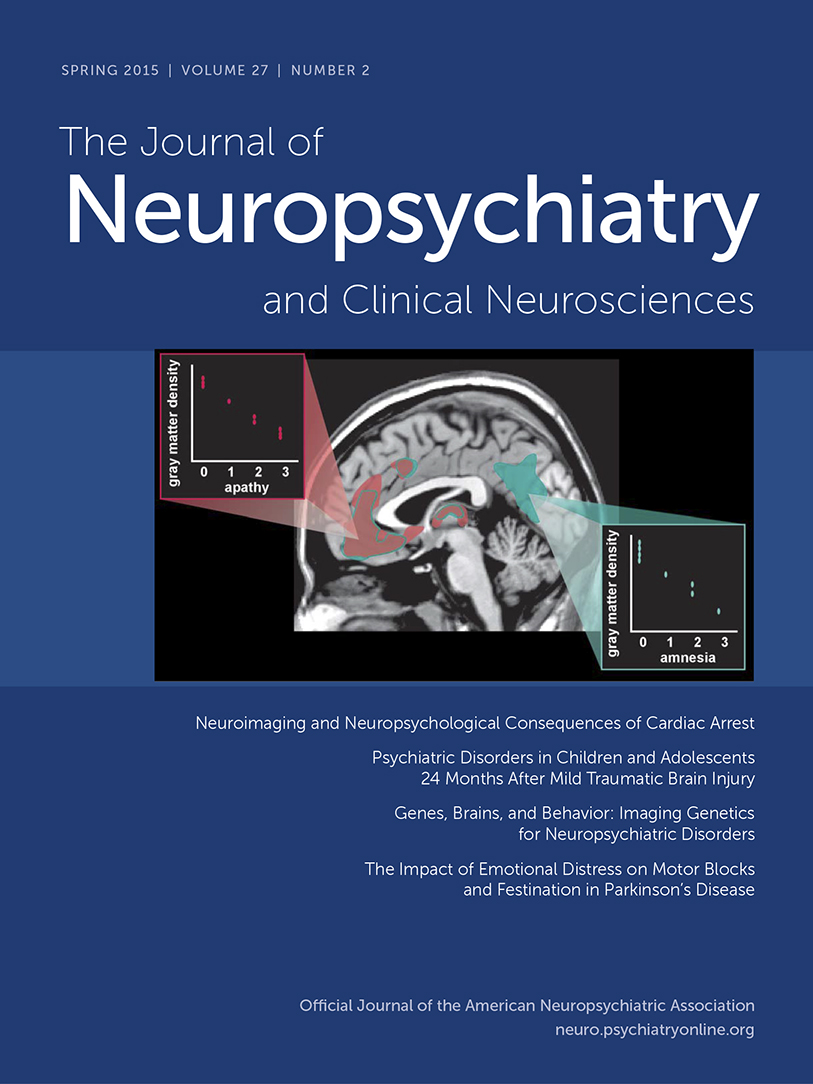Mental Health Diagnoses and Health Care Utilization in Persons With Dementia, Parkinson’s Disease, and Stroke
Abstract
In late life, neurological disturbances, depression, and anxiety frequently complicate the clinical presentation but are often undertreated. An administrative database of 3,034 male veterans, age 55 years and older, with a diagnosis of dementia, Parkinson’s disease, or stroke was examined for the prevalence of mood and anxiety disorders and mental health service use. Those with more than one of these neurological diagnoses were most likely to have a comorbid depressive or anxiety disorder. The majority of patients with anxiety and depression were prescribed antidepressants. Mental health specialty visits were less frequent than medication treatment overall but most common for those with dementia only. These data suggest that specialty mental health care remains a significant unmet need for individuals with neurological disorders complicated by depression and anxiety.



